
|
Soil Moisture Profile - - - Understanding Optimum and the many variations |
Reference Tip TB9003 |
Technical Bulletin Series Support Info for the Garden Calculator Pro I |

|
Soil Moisture Profile - - - Understanding Optimum and the many variations |
Reference Tip TB9003 |
Technical Bulletin Series Support Info for the Garden Calculator Pro I |
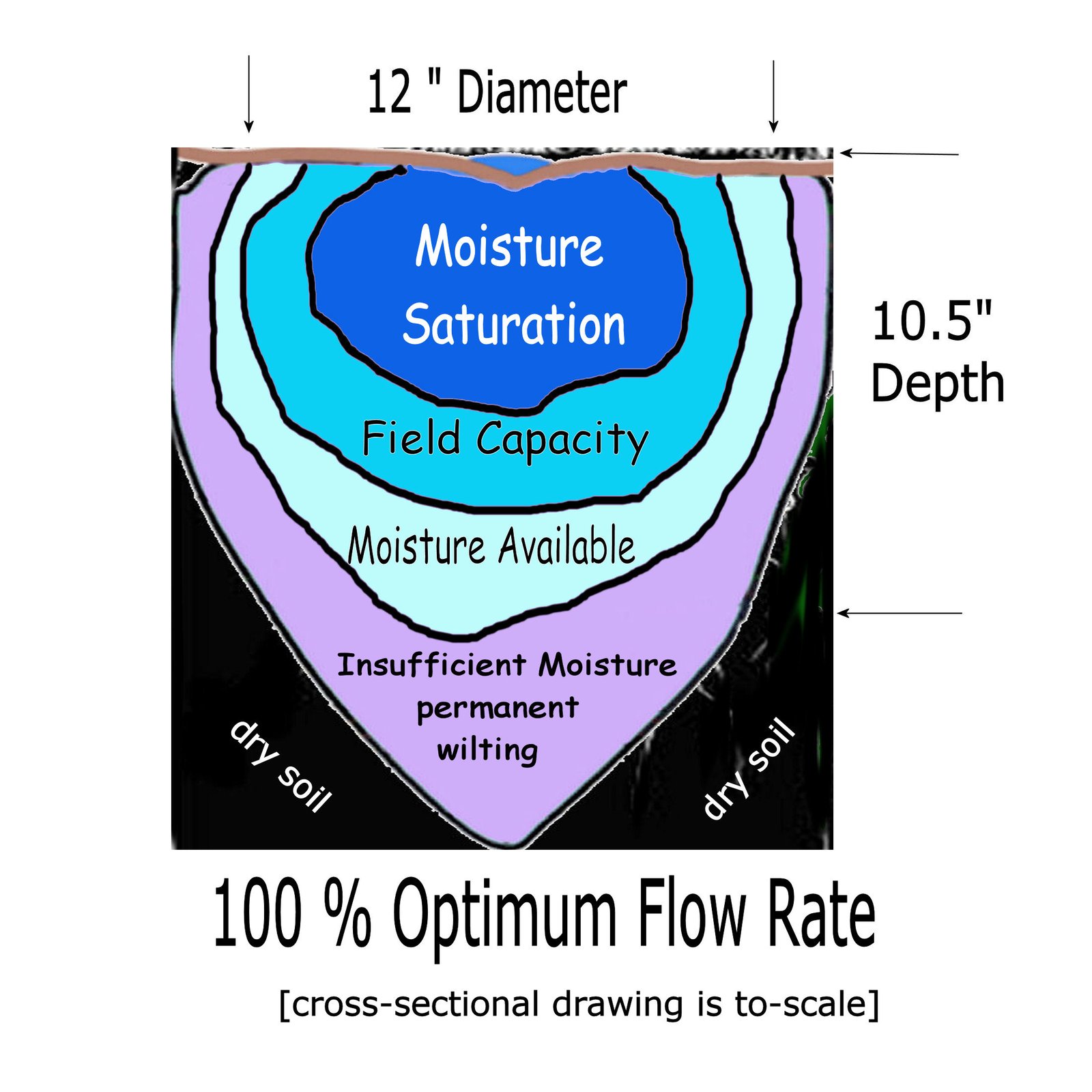
When water application rate "Matches" the soil the spread and depth of moisture are balanced. This depth creates strong and resilient root systems. |
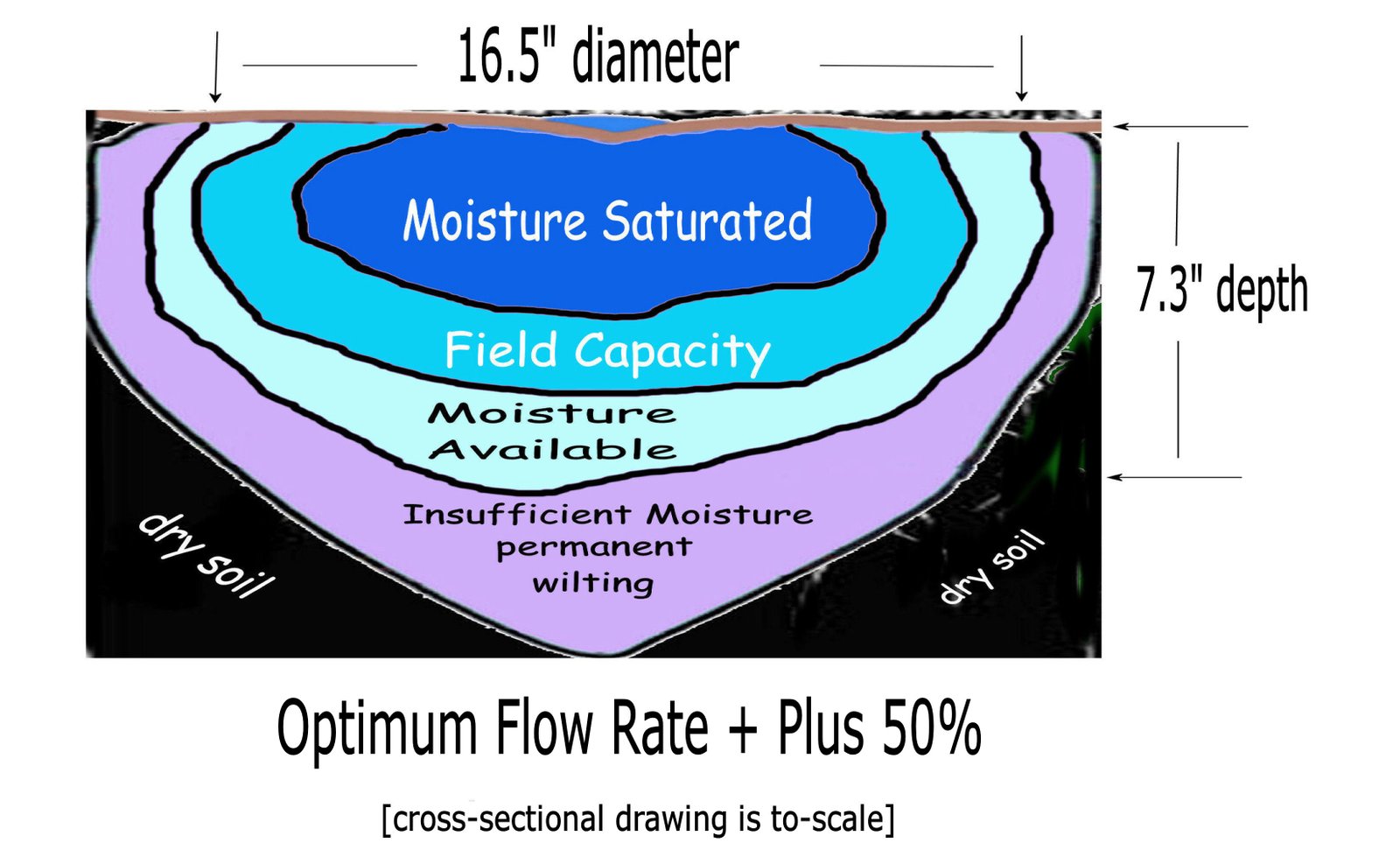
When the water application rate exceeds optimum, but less than 75% (150% = 50%) moisture depth is still decent, though less than desired. |
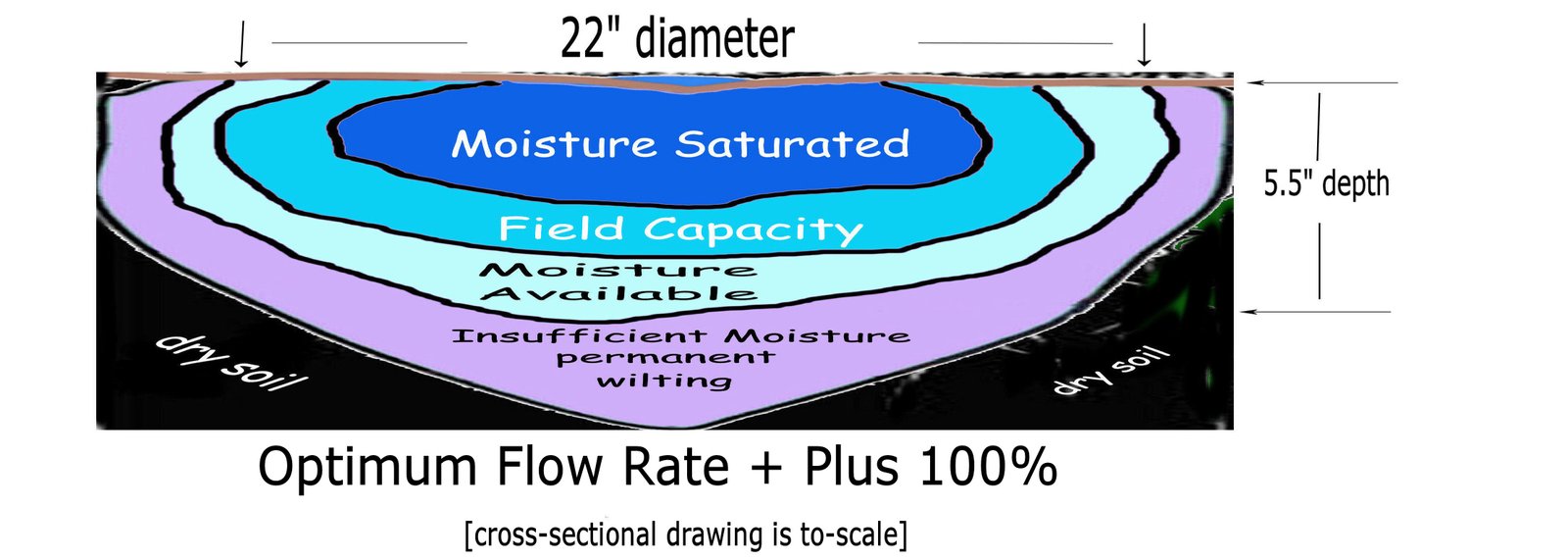
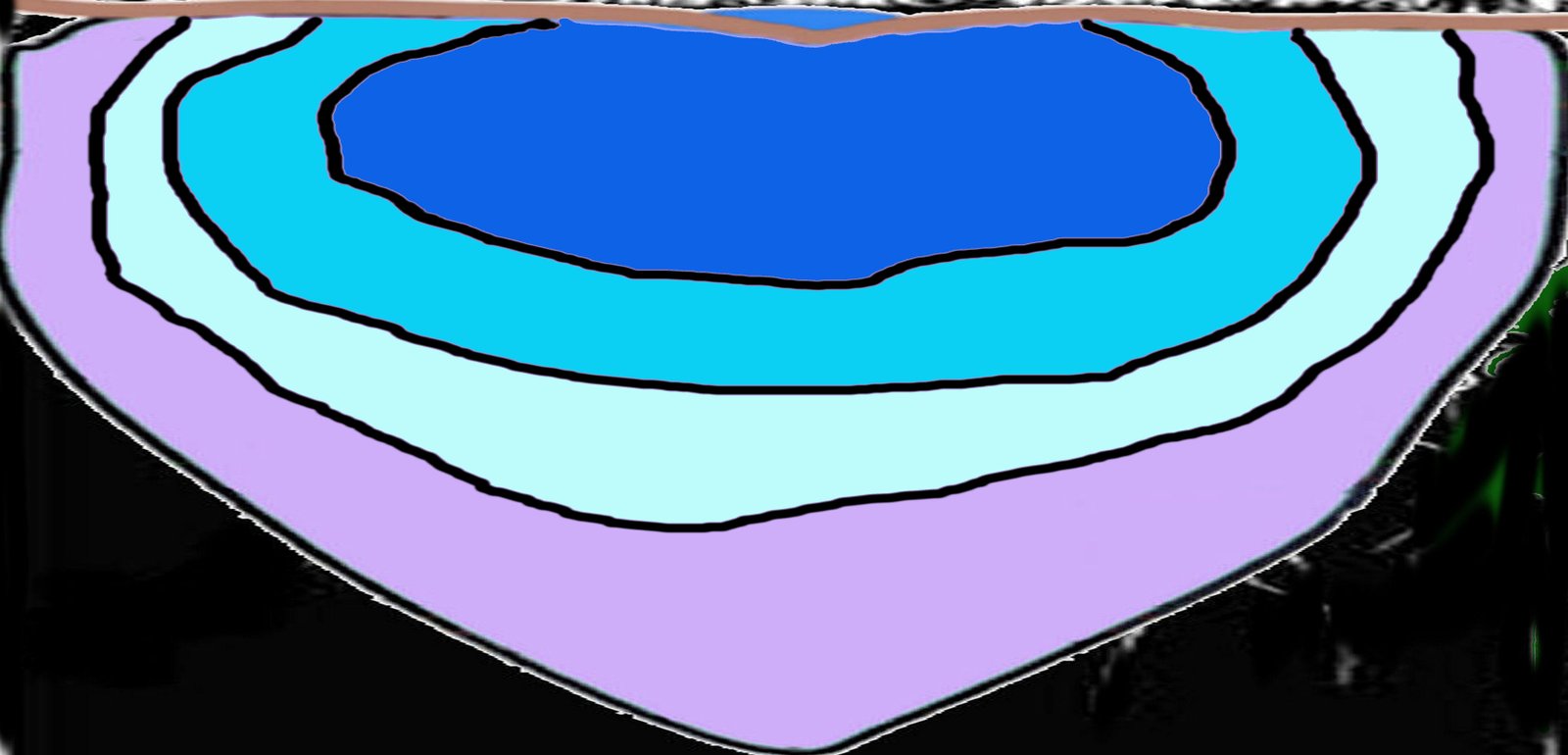
actual moisture profile proportions At 200% of Optimum, the spread of moisture has become excessive while the depth is less than 6 inches. This is not a good rate of application. Waste and plant stress are certain. |

actual moisture profile proportions 
Ponding or Puddling looks like this. Water flows to areas not intended to be irrigated. When the application rate of water exceeds the Optimum by more than 300% "Ponding" is likely to occur. This is when water on the surface spreads laterally or sideways without being absorbed. This wasted water is detrimental. |

This upper image is distorted in order to facilitate reading actual moisture profile proportions When the applpication rate is 400% of Optimum, moisture is drastically moving sideways, and failing to reach lower depths where the root system needs it. |
|
Application flow rates faster than Optimum
are mostly found where the soil
Hydraulic Condivity Rate is below 0.14 inch per hour.
A different issue crops up when the soil [HCR] is over 1.4 inches per hour. When the soil offers little resistance towards the movement of moisture, there is the need to slow the feed rate, and multiply distribution in order to prevent watering too deeply; wasting water and stressing plants. 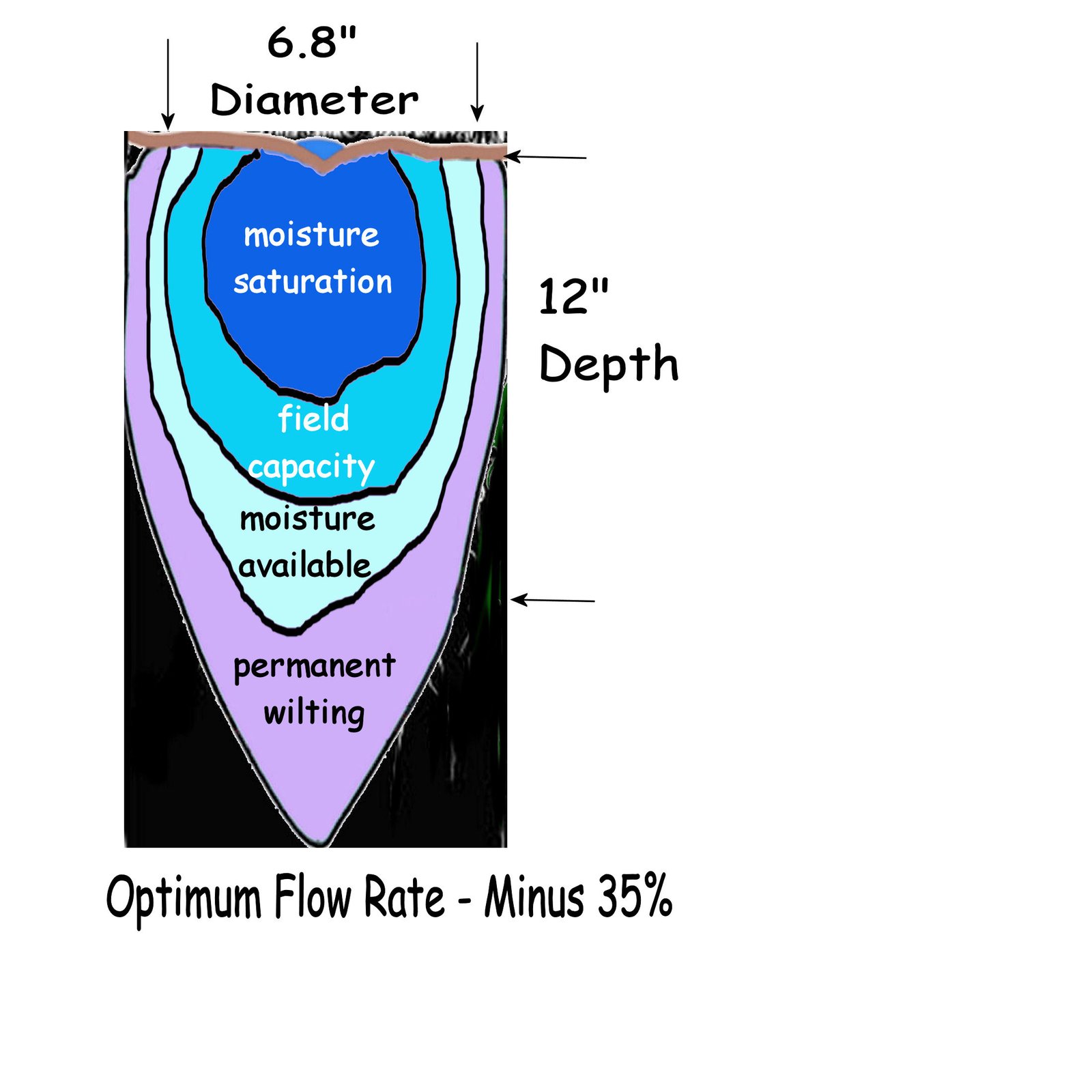
Due to less resistance to movement, gravity
draws the moisture down faster than it moves
laterally due to capillary action.
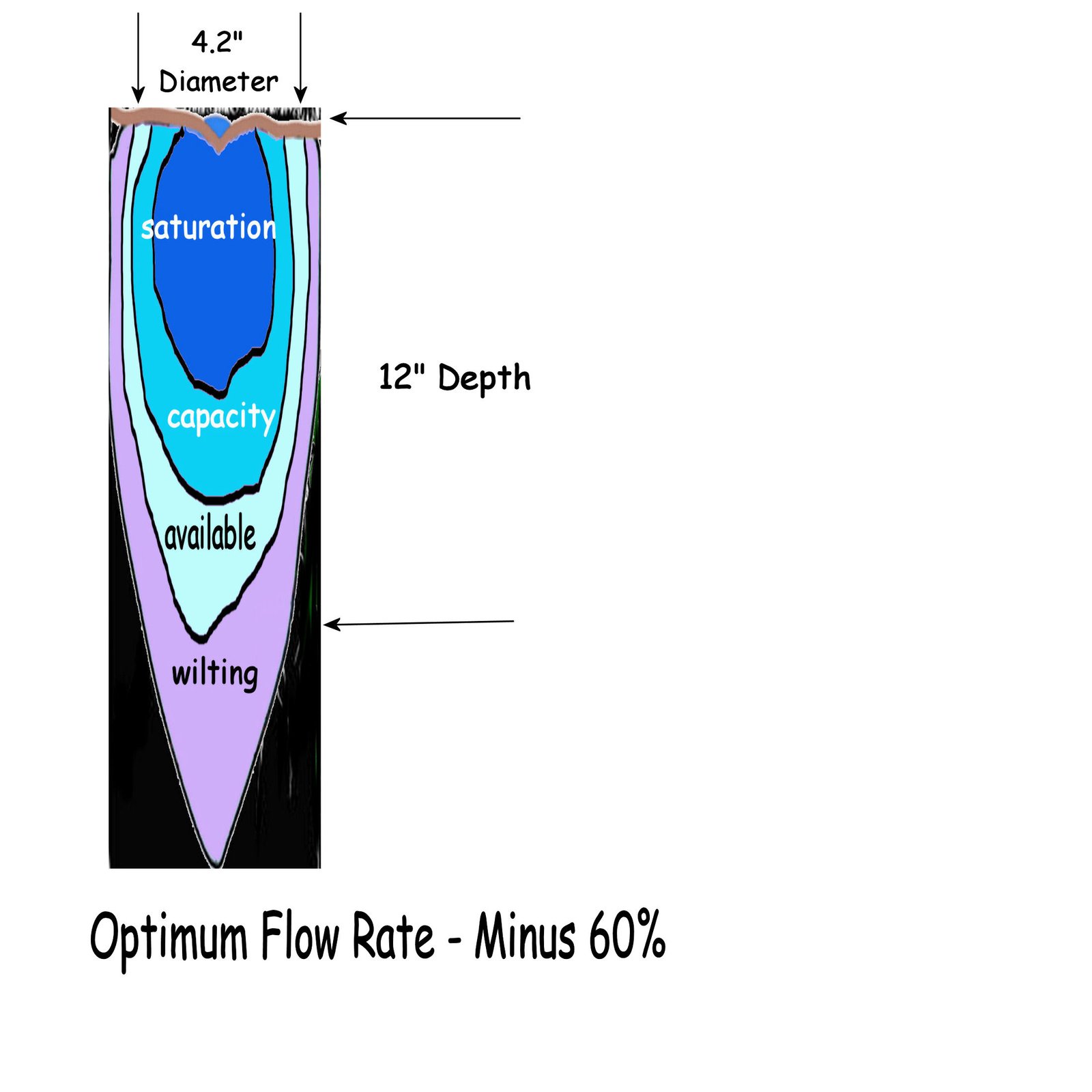
This results in root system soil moisture
creating a profile similar to this:
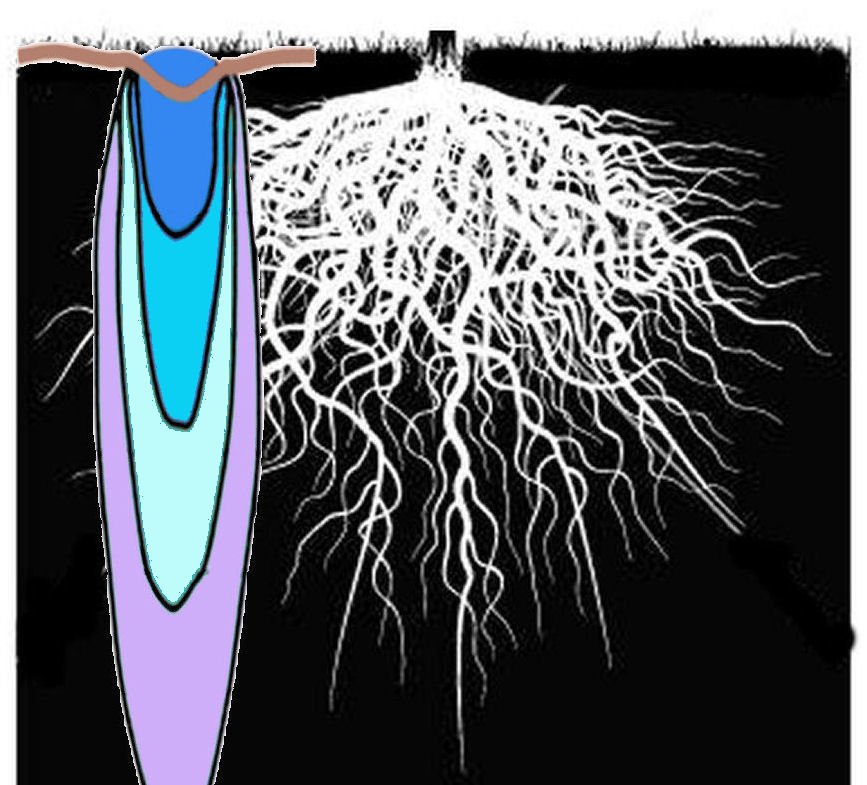
|
There is a way to deal with this challenge.
The distribution surface area per emitter is
inevitably reduced, so the design should incorporate
more emitters per square foot within the necessary
root zone.
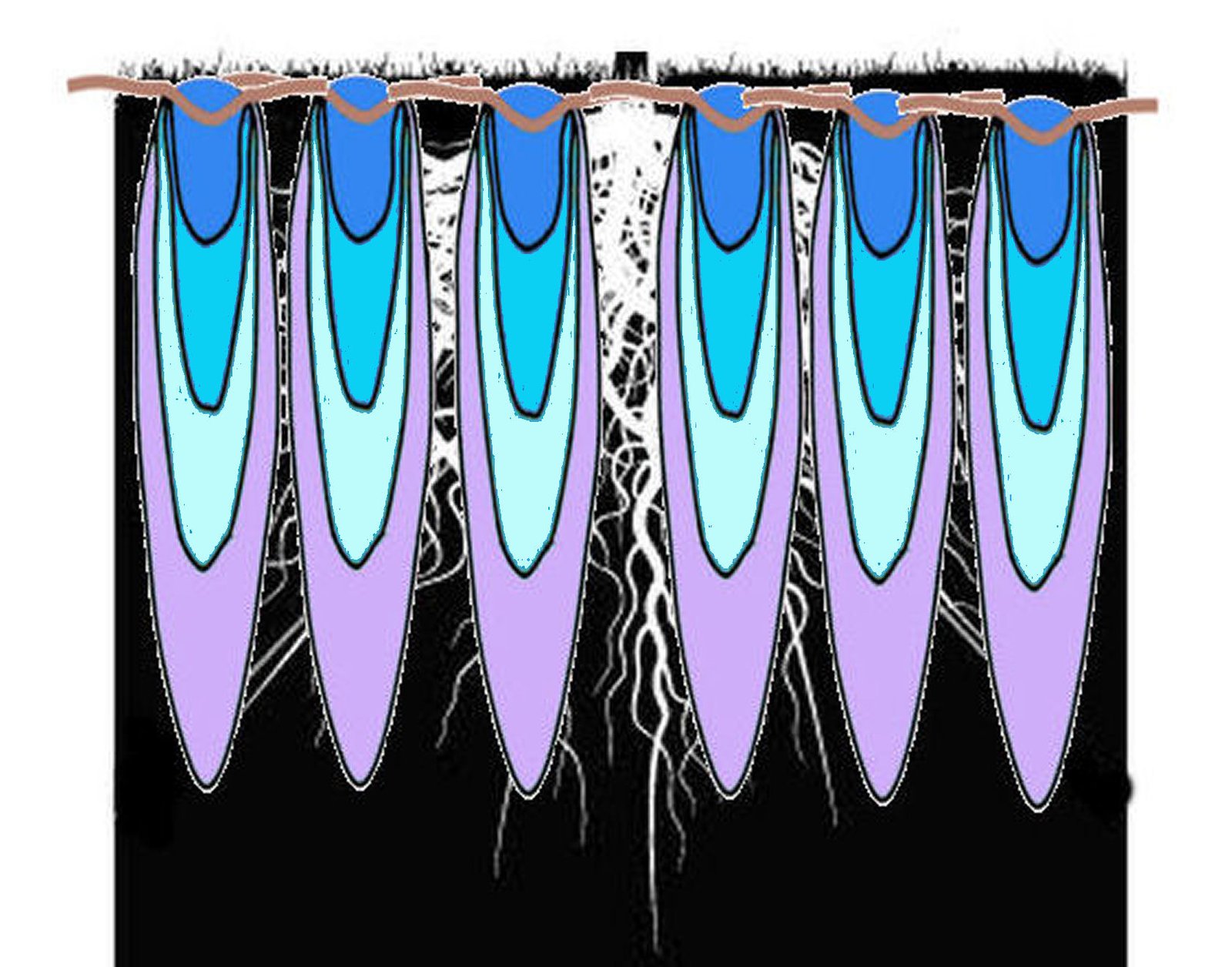
This will apply water at a faster rate per square foot,
but the soil will have no trouble accepting moisture
at that rate (when matched - to the soil [HCR].
The GG Soil-Flow Pro-I Calculator will perform all the mathematical calculations needed to know emitters spacings and run time for any plant and soil composition |
|
Variations from Optimum
Rarely is it practical to achieve 100% optimum
application rate for a particular soil type.
Any rate that is within + plus or - minus 50%
of optimum, will generally produce an efficient
irrigation. As you can see by the images,
the further the system departs from Optimum
Flow Rate (Matching), the greater the moisture
profile distortion, and the less efficient
the system.
|